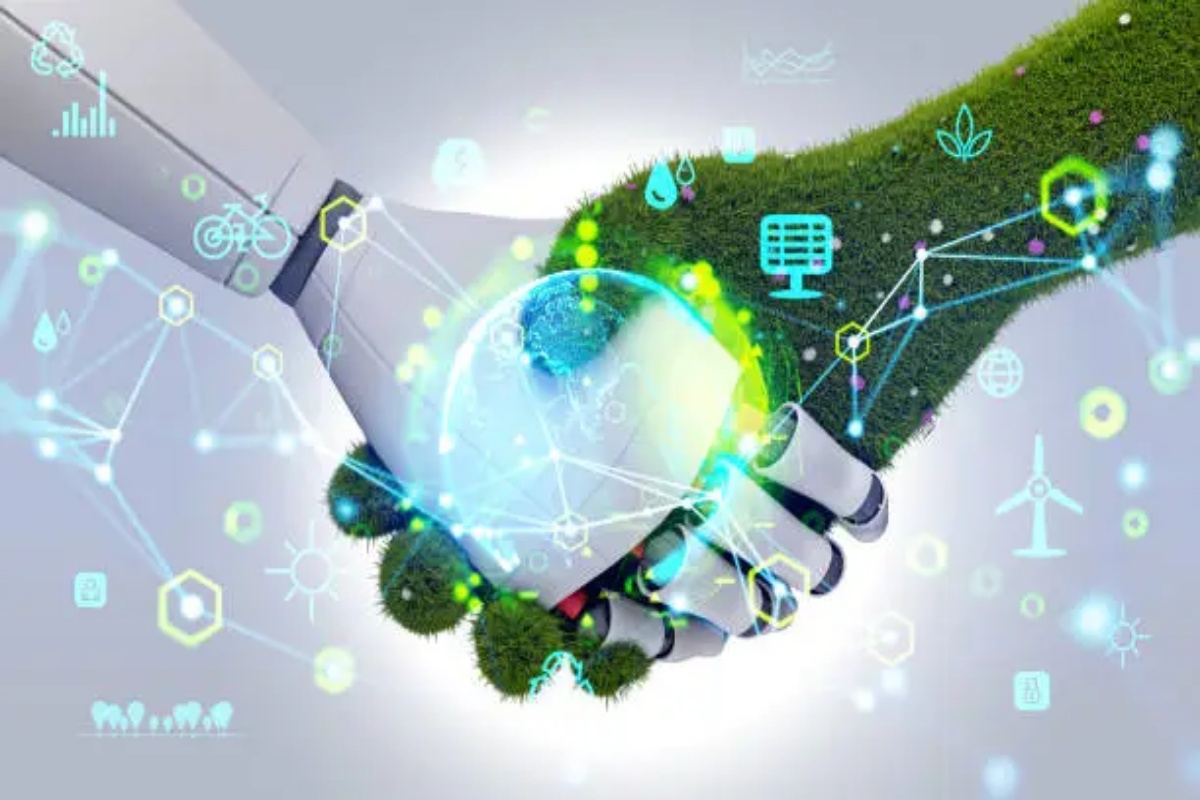In an era marked by urgent environmental challenges, the fusion of Artificial Intelligence (AI) and green technology is creating groundbreaking opportunities to protect our planet. As climate change accelerates, and natural resources dwindle, leveraging AI’s power to enhance sustainability efforts is not just an option—it’s a necessity.
This blog explores how AI is fundamentally transforming green tech, driving smarter solutions, maximizing efficiency, and enabling a cleaner, greener future.
What is Green Technology and Why Does AI Matter?
Green technology refers to innovations designed to minimize environmental impact through cleaner energy production, waste reduction, water conservation, and sustainable agriculture. Meanwhile, Artificial Intelligence—the capability of machines to learn, analyze, and make decisions—enables green tech to become more predictive, adaptive, and effective.
By combining AI’s computational power with green innovations, we unlock smarter ways to solve environmental issues at scale.
AI-Powered Breakthroughs in Renewable Energy
Renewable energy sources like solar and wind are pivotal for reducing carbon emissions, but their intermittent nature challenges grid reliability. AI helps overcome these hurdles:
- Forecasting Energy Output: Machine learning models analyze weather data to predict solar and wind energy production with remarkable accuracy. This helps balance supply and demand and optimizes energy storage.
- Optimizing Maintenance: AI predicts equipment failures in turbines and solar panels, reducing downtime and maintenance costs, ensuring continuous clean energy generation.
This intelligence enables cleaner, more reliable energy systems worldwide.
Smarter Energy Consumption and Management
Energy conservation is just as crucial as generation. AI enhances efficiency through:
- Smart Grids: AI-enabled grids dynamically manage electricity distribution, integrating renewable energy seamlessly and reducing waste.
- Automated Homes and Buildings: Intelligent thermostats and lighting systems learn user habits to minimize energy consumption without compromising comfort, lowering carbon footprints.
These systems reduce energy waste on a massive scale while promoting sustainable living.
Revolutionizing Agriculture with AI
Agriculture accounts for a significant share of global emissions and resource use. AI-driven innovations help make farming more sustainable:
- Precision Farming: AI-powered drones and sensors monitor crop health and soil conditions, enabling targeted irrigation, fertilization, and pest control—saving water and chemicals.
- Yield Prediction: Machine learning forecasts crop yields accurately, helping farmers avoid overproduction and reduce food waste.
Sustainable agriculture supported by AI promotes food security while protecting ecosystems.
Enhancing Climate Change Monitoring and Action
Understanding climate change is complex, but AI’s data crunching capabilities make it easier:
- Satellite Data Analysis: AI processes massive satellite datasets to monitor deforestation, ice melt, and ocean health in near real-time.
- Advanced Climate Modeling: Machine learning improves climate prediction accuracy, informing smarter policy decisions and emergency preparedness.
These tools empower governments and organizations to act swiftly and effectively.
Waste Management and the Circular Economy
AI is transforming how we manage waste and resources:
- Smart Recycling: Robots powered by AI sort recyclables more efficiently than humans, increasing recycling rates and reducing landfill use.
- Reducing Waste: AI analyzes consumption patterns to identify waste hotspots and supports designing circular economy models where materials are reused.
By closing resource loops, AI helps reduce environmental strain and supports sustainable growth.
Water Conservation: AI’s Role in a Scarce Resource
Water scarcity is a global threat. AI technologies help conserve and manage water more effectively:
- Leak Detection: AI monitors water infrastructure to detect leaks early, preventing significant water loss.
- Optimized Irrigation: AI-driven systems deliver water to crops precisely when needed, minimizing waste.
These solutions ensure more responsible water use amid growing demand.
Challenges and Ethical Considerations
Despite AI’s promise, challenges remain:
- Energy Use: AI computations consume energy; powering them sustainably is essential.
- Data Privacy: Collecting environmental and user data must respect privacy rights.
- Equity: Ensuring AI-driven green tech benefits all populations, especially vulnerable communities, is vital.
Addressing these issues is critical for responsible AI deployment.
The Road Ahead: AI and Green Tech for a Sustainable Tomorrow
The future is bright for AI-powered green technology. As algorithms improve and more data becomes available, expect innovations like:
- Global AI platforms to monitor environmental health collaboratively.
- AI-driven personalized sustainability tools for consumers.
- Integration with emerging technologies like blockchain for transparent carbon tracking.
Harnessing AI responsibly will be key to achieving global sustainability goals.
Conclusion
Artificial Intelligence is revolutionizing green technology, making sustainability efforts smarter, more efficient, and scalable. From renewable energy optimization to waste management and climate monitoring, AI is accelerating the global shift towards a cleaner, healthier planet.
By embracing AI in green tech, we’re not just innovating — we’re empowering humanity to tackle environmental challenges head-on and build a sustainable future for generations to come.

